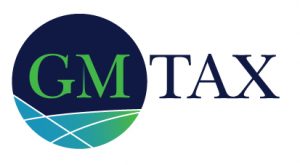Tax Returns & Advice - Working Holiday Makers in Australia
The ATO considers that most people who come to Australia on a temporary working visa or visit are generally not considered Australian tax residents.
This is because, consistent with their visa requirements, it is not the intention to stay in Australia, but only intend to have a holiday while working some of the time.
Should you travel to Australia as a working holiday maker either on a 417 (working holiday) or a 462 (work & holiday) visa, the first $45,000 (2022/2023) of your income is taxed at 15% and the balance is taxed at ordinary rates. This is regardless of residency status.
As a foreign tax resident working in Australia you are still required to lodge an Australian Tax Return with the Australian Taxation Office (ATO) to report your Australian sourced income.
Australian Federal Court backs 2019 ruling the controversial ‘backpacker tax’ invalid
Following an appeal by the ATO, the Australian High Court has (November 2021) reaffirmed a court ruling from October 2019 which stated that the ‘Backpacker Tax’ cannot be levied on citizens from certain foreign countries, namely UK, the US, Germany, Finland, Chile, Japan, Norway and Turkey.
What does this ruling mean for Backpackers?
If you visited Australia as a working holidaymaker between 2017 – 2020, it’s highly likely that you will be entitled to a significant tax refund as a result of this case!
Put simply, if you think you have been affected by the Backpacker Tax, you should contact GM Tax.
Backpackers from other countries:
We anticipate that there will be further developments in this case which will affect backpackers from other countries.
The Australian tax year runs from 1st July to 30th June.
You will need to apply for a tax file number in order to lodge an Australian Tax Return.

Determining Australian Tax Residency Status
Australian tax residents
If you are arriving in Australia to work on a working holiday vis regardless of your tax residency status your income is taxed at working holiday rates of tax.
IIt is important that you obtain professional tax advice in relation to your Australian tax residency position as this may impact your ongoing tax and reporting implications.
Resides Test
The primary test of tax residency is called the resides test. If you reside in Australia, you are considered an Australian resident for tax purposes and you do not need to apply any of the other residency tests.
There are a number of tests to best determine your residency position which are detailed below:
Some of the factors that can be used to determine residency status include:
- physical presence
- intention and purpose
- family
- business or employment ties
- maintenance and location of assets
- social and living arrangements.
There Are Several Aspects of The Resides Test
- What does it mean to ‘reside‘ – “to dwell permanently, or for a considerable time, to have one’s settled or usual abode, to live, in or at a particular place”
- Entering Australia
- Behaviour while in Australia, what is your intention & purpose?
- Physical presence in Australia
- Nationality
Domicile Test
You are an Australian tax resident if your domicile (the place that is your permanent home) is in Australia, unless your permanent place of abode is outside of Australia.
A domicile is a place that is considered to be your permanent home by law. For example, it may be a domicile by origin (where you were born) or by choice (where you have changed your home with the intent of making it permanent).
There are two steps to this test:
Determine your domicile
- If not in Australia, the domicile test is not satisfied.
- If in Australia, go to step two.
Determine your permanent place of abode
- If not in Australia, the domicile test is not satisfied.
- If in Australia, you are considered an Australian resident for income tax purposes.
183 Day Test is the Second Statutory Test
This test only applies to individuals arriving in Australia. You will be a tax resident of Australia under this test if you are physically present in Australia for more than half the income year, whether continuously or with breaks.
your usual place of abode is outside Australia
you have no intention to take up residence here.
In this test, your usual place of abode must be outside of Australia. This is different to the first test (domicile) that requires us to be satisfied that your permanent place of abode is outside Australia.
Commonwealth Superannuation Test is the Third Statutory Test
If you as a Australian government employee, you are considered a resident of Australia for tax purposes, even if you live outside the country. This applies to employees who contribute to certain public sector superannuation schemes.
Under the Commonwealth superannuation test, you are an Australian tax resident if you are a contributing member of:
the Public Sector Superannuation Scheme (PSS), or
the Commonwealth Superannuation Scheme (CSS).
This test does not apply if you are a member of the Public Sector Superannuation Accumulation Plan (PSSAP).
If you are an Australian resident under either of these this tests, your spouse and any children under 16 years old are also Australian residents for tax purposes.

How are Working Holiday Makers Taxed?
If you work in Australia as a working holiday maker (WHM), your employer will withhold tax from your pay and you may need to lodge a tax return each year.
You are a WHM if you have a visa subclass of either:
- 417 Working Holiday
- 462 Work and Holiday (backpackers).
Your residency for tax purposes
For tax purposes in Australia, individuals will be either:
- an Australian resident
- a foreign resident.
For most WHMs, whether you are an Australian or a foreign resident for tax purposes does not affect the rate of tax you pay.
The only exception to this is if you are both:
- an Australian resident for tax purposes
- from a non-discrimination article (NDA) country.
Criteria for same tax rate
You may be taxed on the same basis as a resident Australian national if you satisfy all the following – you are:
- the holder of a Working HolidayExternal Link (subclass 417) visa or Work and HolidayExternal Link (subclass 462) visa
- a resident of Australia for tax purposes for the whole or part of the income year
- from one of the following NDA countries
Chile
Finland
Germany (for 2017–18 and later income years)
Israel (for 2020–21 and later income years)
Japan
Norway
Turkey
United Kingdom.
A resident Australian national is a person who is both:
- a resident of Australia for tax purposes
- a permanent resident of Australia or an Australian citizen.
Most people who come to Australia for a working holiday or to visit are foreign residents for tax purposes.
Tax withheld by your employer
If you are a WHM, and your employer is registered with us as a WHM employer, they will withhold tax at a rate of 15% for the first:
- $45,000 you earn during 2022–23 and later income years.
Higher rates of withholding will apply above these thresholds
Tax Rates for Holiday Visa Holders
The following tax rates for 2022–23 apply for working holiday makers holding a subclass 417 or 462 visa, or a COVID-19 pandemic event 408 visa from 1 July 2022.
Table A: Working holiday makers income tax rates for 2022–23 | ||
Taxable income | Tax rate | Value |
$0 – $45,000 | 15% on each $1 up to $45,000 | 0.15 |
$45,001 – $120,000 | 32.5% on each $1 over $45,000 to $120,000 | 0.325 |
$120,001 – $180,000 | 37% on each $1 over $120,000 to $180,000 | 0.37 |
$180,001 and over | 45% on each $1 over $180,000 | 0.45 |
If no TFN is provided you must withhold at 45% on total payments made.
Claiming a tax refund
End of income year or finishing work
At the end of the financial (tax) year or when you cease working in Australia you need to consider whether to:
Access your income statement
At the end of the income year or when you finish work in Australia, you may choose to or need to lodge a tax return. The information on your income statement or payment summary will help you to work out if you need to lodge a tax return.
Your employer will usually provide an income statement through Single Touch Payroll (STP). It will show the amount you earned, tax withheld and superannuation that has been paid. You will be able to access and see your year-to-date tax and super information (income statement) in ATO online services through your myGov from within Australia.
If your employer is not yet using STP they will provide you with a payment summary.
Lodge a tax return
The Australian financial (tax) year starts on 1 July and ends on 30 June the following year.
Depending on your circumstance you may want to lodge a return.
You do not need to lodge a tax return or a non-lodgment advice if both of the following apply:
- All of your income was earned as salary or wages while you were a WHM.
- The total of your taxable income for the income year was less than
- $45,001 for 2022–23 and later income years.
If you leave Australia permanently before 30 June, you can lodge your tax return early by paper, processing times are up to 50 business days.
The ATO will only accept an early lodgment tax return for individuals before the end of the income year if you are either:
- a foreign resident for tax purposes and you
- are leaving Australia permanently
- will no longer derive Australian-sourced income (other than interest, dividend and royalty income)
- an Australian resident for tax purposes and you
- are leaving Australia
- are ceasing to be an Australian resident for tax purposes
- will no longer derive Australian-sourced income (other than interest, dividend and royalty income).
Departing Australia Superannuation Payment (DASP) – when leaving
If you worked and earned superannuation while visiting Australia on a temporary visa, you can apply to have this superannuation paid to you as a departing Australia superannuation payment (DASP) after you leave.
Generally, you can claim a departing Australia superannuation payment (DASP) if the following apply:
- you accumulated superannuation while working in Australia on a temporary resident visa issued under the Migration Act 1958 (excluding Subclasses 405 and 410)
- your visa has ceased to be in effect (for example, it has expired or been cancelled)
- you have left Australia and you do not hold any other active Australian visa
- you are not an Australian or New Zealand citizen, or a permanent resident of Australia.
Note: If you are a New Zealand citizen leaving Australia permanently, you may be able to transfer your super to New Zealand under the Trans-Tasman retirement savings portability scheme for individuals.
Your DASP is taxed before you receive it. The DASP tax rate is different for working holiday makers (WHM). If you hold (or held) a 417 (Working Holiday) or 462 (Work and Holiday) visa you are classified as a WHM.
If it has been six months or more since you left Australia, your visa has ceased to be in effect. If you have not claimed DASP, your superannuation fund will transfer your superannuation money to the ATO as unclaimed superannuation
Deductions
You can claim deductions expenses you have incurred in your tax return. Most are work-related expenses you have incurred to earn your income as an employee.
To claim a deduction for a work-related expense, you must meet the 3 golden rules:
- You must have spent the money yourself and have not been reimbursed.
- The expenses must directly relate to earning your income.
- You must have a record to prove it (usually a receipt).
You claim these in your tax return at the ‘Work-related expense’ sections.
If the expense was for both work and private purposes, you only claim a deduction for the work-related use.
You cannot claim a deduction if your employer pays for or reimburses you for any of these costs.
Other work-related expenses
You may be able to claim other work-related deductions for expenses you incur in the course of earning your income.
You claim these in your tax return as an ‘Other work-related expense’.
These may include:
Other expenses
You may also be able to claim a deduction for other expenses you incur that do not relate to your work or income producing activities.
You claim these in your tax return at the specific expense category (where available) or as an ‘Other deduction’.
Occupation and industry specific guides
Our occupation and industry specific guides give you information about income, allowances and deductions you can claim for work-related expenses. We tailor these to address common claims and errors in your occupation or industry.
Managing your deductions
You need to keep records for most expenses when you claim a deduction.
You can use the myDeductions tool in the ATO app to help keep track of your:
- work-related expenses (such as, vehicle trips)
- general expenses (such as, gifts and donations).
This would depend on the amount of income you earn.
Most who come to Australia for a working holiday or visit are not considered to be residents for tax purposes.
2022/2023 rates of tax Taxable income | Tax rate | Value |
$0 – $45,000 | 15% on each $1 up to $45,000 | 0.15 |
$45,001 – $120,000 | 32.5% on each $1 over $45,000 to $120,000 | 0.325 |
$120,001 – $180,000 | 37% on each $1 over $120,000 to $180,000 | 0.37 |
$180,001 and over | 45% on each $1 over $180,000 | 0.45 |
No, see above rates of tax.
Backpackers, holidaymakers, students and holders of a 417 visa may be eligible for a tax refund, provided that you meet certain requirements.
You can apply via the ATO website, you need to:
- be 15 years and older
- have an Australian Passport
- have at least one other Australian identity document such as a drivers licence.
The filing deadline will vary depending of whether you are lodging the tax return yourself of via a registered tax agent:
- Lodging yourself the filing deadline is 31 October.
- Lodging via a tax agent the filing deadline is May the following year, if all your prior year tax returns have been lodged on time.

Specialist Working Holiday Tax Return Services
We at GM Tax provide fixed fee quotes for all tax returns.
If you are moving to Australia or are already living in Australia or departing Australia and would like a fixed fee proposal from a firm of UK & Australian tax advisors that understands the issues affecting new arrivals to Australia or if you are leaving Australia please complete our online enquiry via our home page or by calling a GM Tax office close to you.
GM Tax Also Offers The Following Services:
GM Tax Also Offers The Following Services:
- Tax planning advice and guidance with regards to your Australian residency status or change in visa status.
- Preparation of Australian tax returns, with all returns submitted to the ATO electronically.
- Advice on the tax position where a property in Australia is being let while a taxpayer is living overseas.
- Impact of ceasing to be an Australian Tax Resident and capital gains tax deeming provisions.
- Assistance to ensure Australian sourced income of those who are non-residents of Australia is properly taxed and is not taxed twice, or double taxed.
- HECS reporting obligations as a non-resident of Australia in receipt of foreign sourced income.
